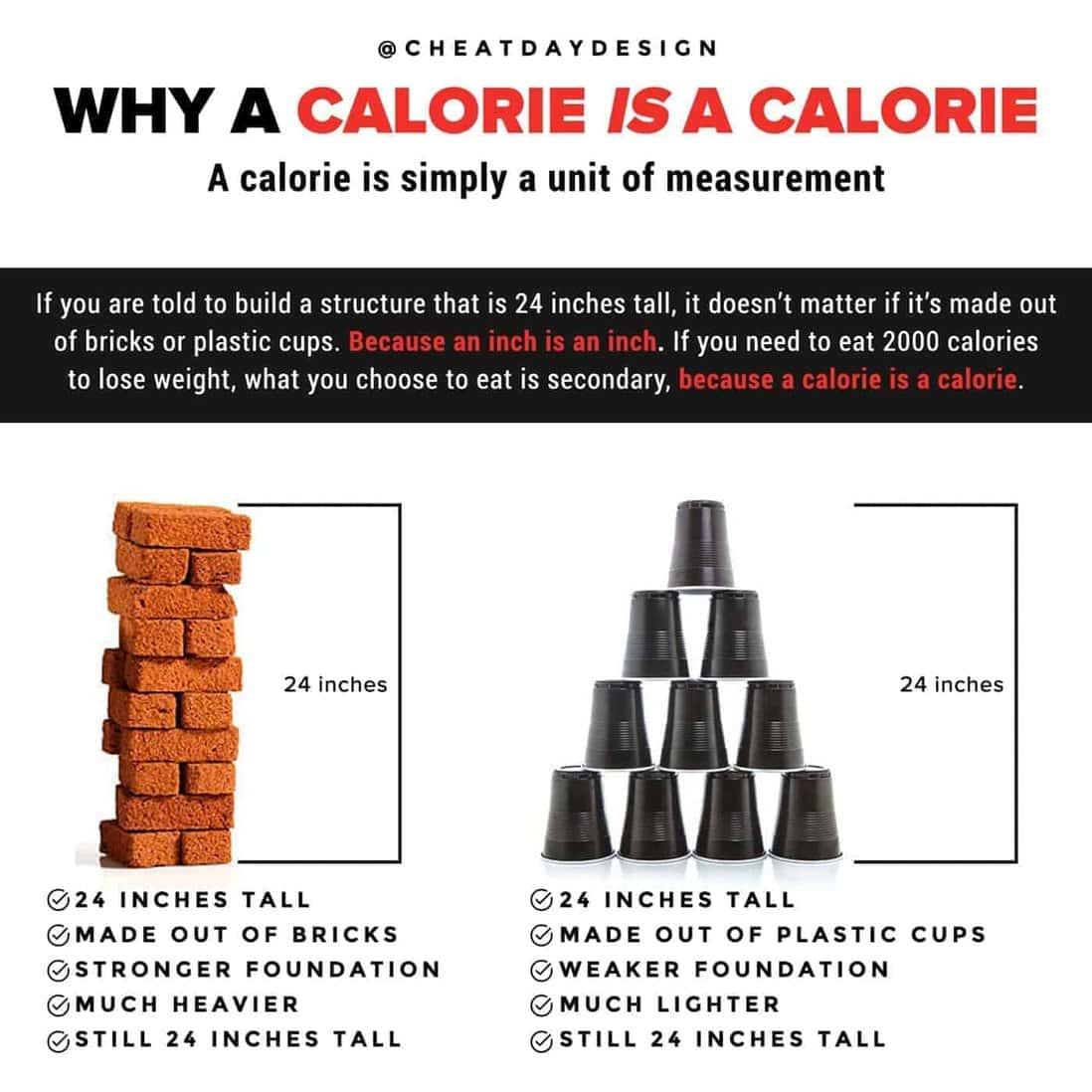Have you ever wondered if losing weight really comes down to just one simple rule: calories in versus calories out? You’ve probably heard it a million times—eat less, move more.
But is it really that easy? What if there’s more to the story that could make your weight loss journey smoother and more effective? You’ll discover why focusing only on calories might be holding you back and what you can do to take control of your body in a smarter way.
Keep reading—your path to lasting results could start here.
Calories In Vs. Calories Out Concept
Weight loss often comes down to calories in versus calories out. This means the calories you eat compared to the calories you burn.
If you eat more calories than you burn, you gain weight. If you burn more than you eat, you lose weight.
Basic Principle Explained
The body uses calories for energy. These come from food and drinks you consume. Your body burns calories through activities and basic functions.
Calories in means the total calories eaten. Calories out means the calories burned by your body. To lose weight, calories out must be higher than calories in.
- Calories In = Food and drink energy
- Calories Out = Energy used by body and exercise
- Weight loss happens if Calories Out > Calories In
Common Misconceptions
People think all calories are equal. But the body processes calories differently based on food type. Protein, fat, and carbs affect hunger and metabolism.
Another wrong idea is that exercise alone will make you lose weight. Exercise helps, but diet matters more. You can still gain weight if you eat too much.
- Not all calories have the same effect on the body
- Exercise burns calories but may increase hunger
- Quality of food matters, not just calorie count
- Metabolism and hormones also influence weight changes
Factors Affecting Calorie Intake
Weight loss is often linked to calories in and calories out. Many people think only about how much they eat and burn. But several factors affect how many calories we take in each day.
Understanding these factors helps us see why weight loss is not just about counting calories. Our bodies and minds play big roles in calorie intake.
Food Quality And Nutrient Density
Not all calories are equal. Food quality and nutrient density affect how full we feel. High-quality foods give more nutrients with fewer calories.
Eating nutrient-dense foods helps control hunger. These foods often have fiber, protein, and healthy fats that keep us satisfied longer.
- Vegetables and fruits are low in calories but rich in nutrients
- Whole grains provide fiber that slows digestion
- Lean proteins help build muscle and reduce hunger
- Processed foods often have empty calories and less nutrition
Hormonal Influences On Appetite
Hormones control hunger and fullness signals in our bodies. They affect how much we want to eat and when.
Some hormones increase appetite, while others tell us to stop eating. Stress and sleep can change hormone levels and affect hunger.
- Ghrelin makes us feel hungry
- Leptin signals when we are full
- Cortisol, a stress hormone, can increase appetite
- Poor sleep can raise ghrelin and lower leptin
Emotional And Environmental Triggers
Our feelings and surroundings can change how much we eat. Stress, boredom, or sadness often lead to eating more.
Environment also plays a role. Seeing or smelling food can make us want to eat even if we are not hungry.
- Eating when stressed or anxious
- Snacking while watching TV or working
- Easy access to high-calorie foods
- Social events that encourage overeating
Variables Impacting Calorie Expenditure
Weight loss depends on calories eaten and calories burned. But many factors affect how many calories your body uses daily.
Understanding these variables helps explain why people lose weight differently, even if they eat the same amount.
Basal Metabolic Rate Variations
Your Basal Metabolic Rate (BMR) is the energy your body uses at rest. It keeps your heart beating and lungs working.
BMR differs by age, gender, and body size. Muscle burns more calories than fat, so people with more muscle have higher BMR.
- Older people usually have lower BMR
- Men often have higher BMR than women
- More muscle increases BMR
Physical Activity Levels
Physical activity is any movement that burns calories. This includes exercise and daily tasks like walking or cleaning.
People who move more burn more calories. Activity levels vary a lot between individuals and days.
- Exercise increases calorie burn
- Non-exercise activity also uses calories
- Sedentary lifestyle lowers total calorie burn
Thermic Effect Of Food
The Thermic Effect of Food (TEF) is the energy used to digest and absorb food. It adds to total calorie use.
Different foods cause different TEF levels. Protein has the highest effect, while fats have the lowest.
| Macronutrient | Approximate TEF (%) |
|---|---|
| Protein | 20-30% |
| Carbohydrates | 5-10% |
| Fats | 0-3% |
Role Of Metabolism In Weight Loss
Weight loss is often thought of as calories in versus calories out. This means eating fewer calories than your body uses. But metabolism plays a big role in how your body burns calories.
Metabolism is the process your body uses to turn food into energy. It affects how many calories you burn every day, even when resting.
Metabolic Adaptations
Your metabolism can change as you lose weight. This is called metabolic adaptation. It means your body burns fewer calories than before.
Metabolic adaptations help your body save energy during times of less food. This can slow down weight loss and make it harder to keep weight off.
- Body reduces calorie use to protect itself
- Energy-saving changes happen in organs and muscles
- Weight loss can slow even if eating the same amount
Impact Of Muscle Mass
Muscle mass affects metabolism because muscle burns more calories than fat. More muscle means a higher resting metabolic rate.
Building muscle helps increase the number of calories your body uses daily. This can support weight loss and keep it off.
- Muscle increases calorie burning even at rest
- Strength training helps build and maintain muscle
- More muscle helps prevent metabolic slowdown during weight loss
Psychological And Behavioral Factors
Weight loss is not only about calories in versus calories out. Our mind and habits play a big role. How we think and behave affects our eating and activity.
Understanding these psychological and behavioral factors helps us manage weight better. It shows why some people struggle even with calorie control.
Eating Habits And Patterns
Eating habits shape how much and what we eat. Skipping meals or eating late can change hunger signals. This leads to overeating later.
Patterns like emotional eating affect weight. People eat not just for hunger but for comfort or stress relief.
- Eating too fast can cause overeating
- Skipping breakfast may increase hunger later
- Emotional triggers lead to unnecessary snacking
- Regular meal times help control appetite
Stress And Sleep Effects
Stress changes hormones that increase hunger and fat storage. It often makes people crave sugary or fatty foods.
Poor sleep affects weight by changing metabolism and appetite hormones. Lack of sleep can cause more hunger and less energy.
- Stress raises cortisol, increasing fat storage
- Sleep loss lowers leptin, raising hunger
- High stress leads to unhealthy food choices
- Good sleep helps maintain balanced metabolism

Why Calories Alone Don’t Tell The Whole Story
Many people think weight loss is only about calories in and calories out. This means eating fewer calories than you burn. But this idea does not explain everything about weight loss.
Calories matter, but other factors change how your body uses energy. Understanding these can help you reach your goals better.
Quality Over Quantity
Not all calories are the same. Calories from healthy foods affect your body differently than calories from junk food. Quality food helps you feel full longer.
Eating nutrient-rich foods supports your metabolism and energy levels. This helps your body burn calories more efficiently.
- Proteins boost muscle and burn more calories
- Fiber-rich foods keep you full and aid digestion
- Sugary foods can cause quick energy spikes and crashes
Individual Differences
Each person’s body works in a unique way. Genetics, age, and activity level all affect how you burn calories. Some people lose weight faster than others.
Your hormones and metabolism also play a big role. These can change how many calories your body needs each day.
- Older people tend to burn fewer calories at rest
- Muscle mass increases calorie burning
- Stress and sleep affect hormone levels and appetite
Practical Approaches To Sustainable Weight Loss
Weight loss is often seen as calories in versus calories out. This idea means you lose weight if you burn more calories than you eat. But real-life weight loss is not always this simple.
Focusing on healthy habits helps you lose weight and keep it off. Here are practical ways to make weight loss steady and lasting.
Balanced Diet Strategies
A balanced diet means eating the right amounts of proteins, fats, and carbs. It gives your body the nutrients it needs to work well.
Try to include fruits, vegetables, whole grains, and lean proteins in your meals. Avoid too much sugar and processed foods.
- Eat a variety of colorful vegetables daily
- Choose whole grains instead of refined grains
- Include healthy fats like nuts and olive oil
- Limit sugary drinks and snacks
Incorporating Regular Exercise
Exercise helps burn calories and builds muscle. Muscle makes your body burn more calories even when resting.
Find activities you enjoy. This makes it easier to keep moving regularly. Aim for at least 150 minutes of moderate exercise each week.
- Walk, bike, or swim for fun and fitness
- Try strength training to build muscle
- Stretch to improve flexibility and reduce injury
- Make exercise a regular part of your week
Mindful Eating Practices
Mindful eating means paying full attention to your food. It helps you enjoy meals and avoid overeating.
Eat slowly and notice the taste, smell, and texture of food. Stop eating when you feel full, not stuffed.
- Turn off screens during meals
- Chew food slowly and savor each bite
- Listen to your hunger and fullness signals
- Avoid eating out of boredom or stress


Frequently Asked Questions
Is Weight Loss Only About Calories In Vs. Calories Out?
Weight loss largely depends on calories consumed versus calories burned. However, factors like metabolism, hormones, and food quality also affect results. Simply counting calories may not guarantee effective or sustainable weight loss.
How Do Metabolism And Hormones Affect Weight Loss?
Metabolism controls how fast your body burns calories. Hormones regulate hunger and fat storage. Imbalances can slow weight loss despite calorie control. Addressing these factors improves weight loss success.
Can All Calories Affect Weight Loss Equally?
No, calorie source matters. Protein boosts metabolism and satiety more than fats or carbs. Highly processed foods may lead to fat gain even with calorie control. Quality matters alongside calorie quantity.
Does Exercise Impact Calories Out For Weight Loss?
Yes, exercise increases calories burned and preserves muscle mass. This supports higher metabolism and fat loss. Combining diet and exercise is more effective than diet alone for sustainable weight loss.
Conclusion
Understanding weight loss goes beyond just calories in vs. Out. Balancing diet and activity matters greatly. It’s crucial to listen to your body. Different factors influence weight, including sleep and stress. Everyone’s journey is unique. A healthy lifestyle involves more than numbers.
It requires patience and consistency. Small changes can lead to big results over time. Remember, focus on overall health, not just weight. Seek guidance from professionals if needed. Keep learning and adapting your approach. Stay positive and motivated on your path.
Your health journey is your own.



